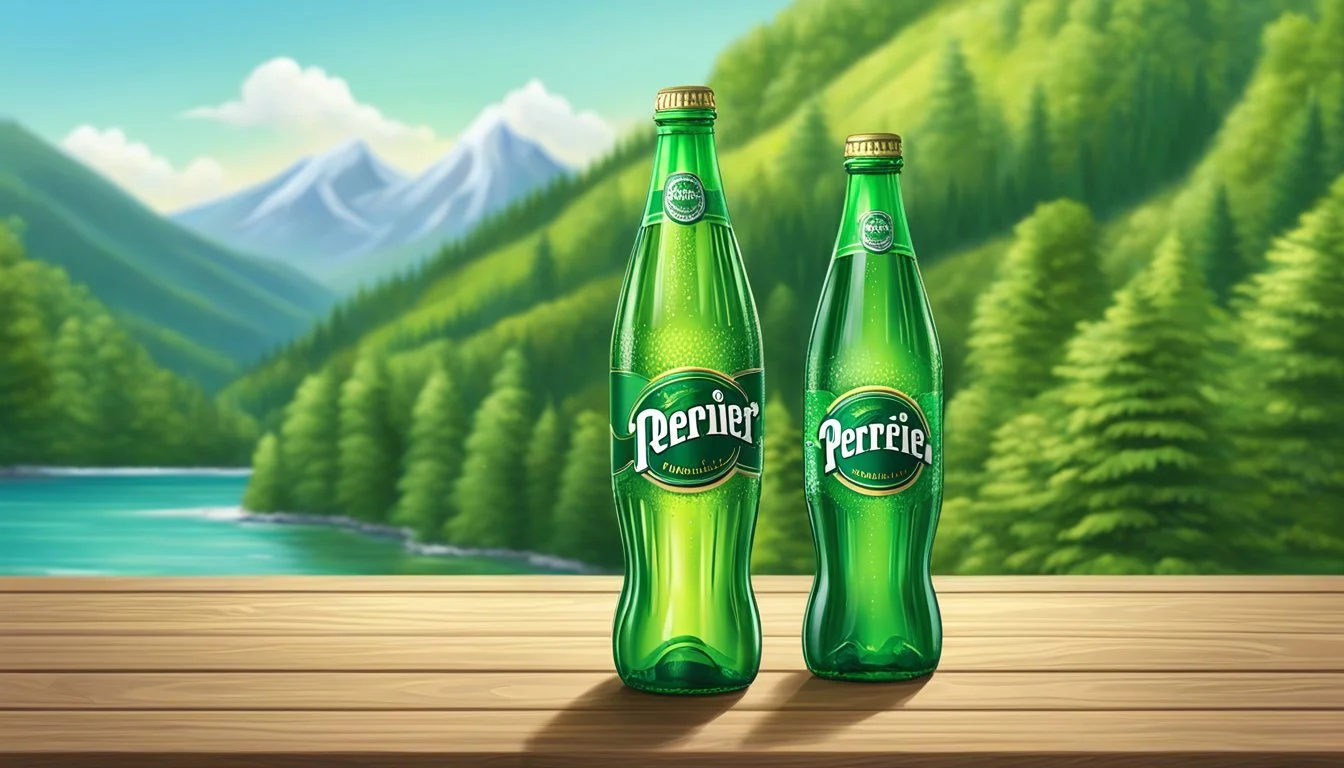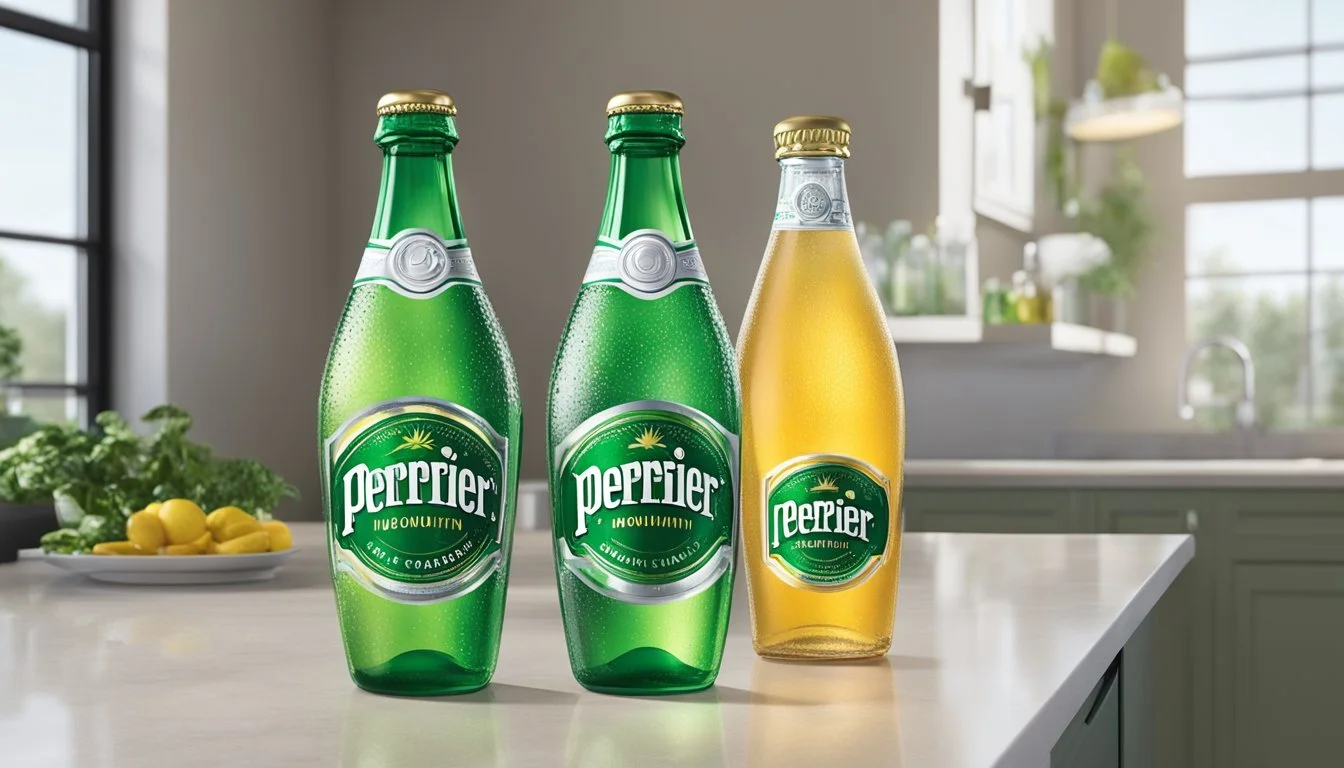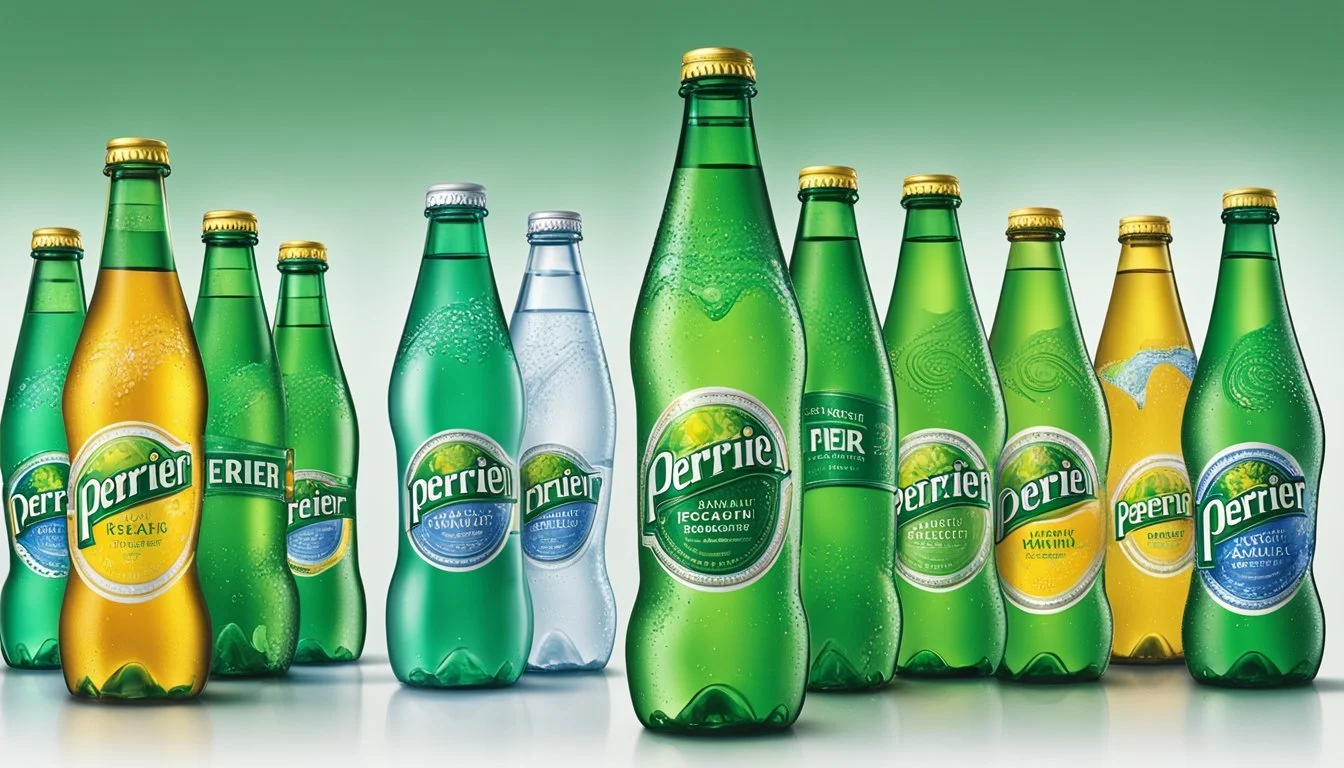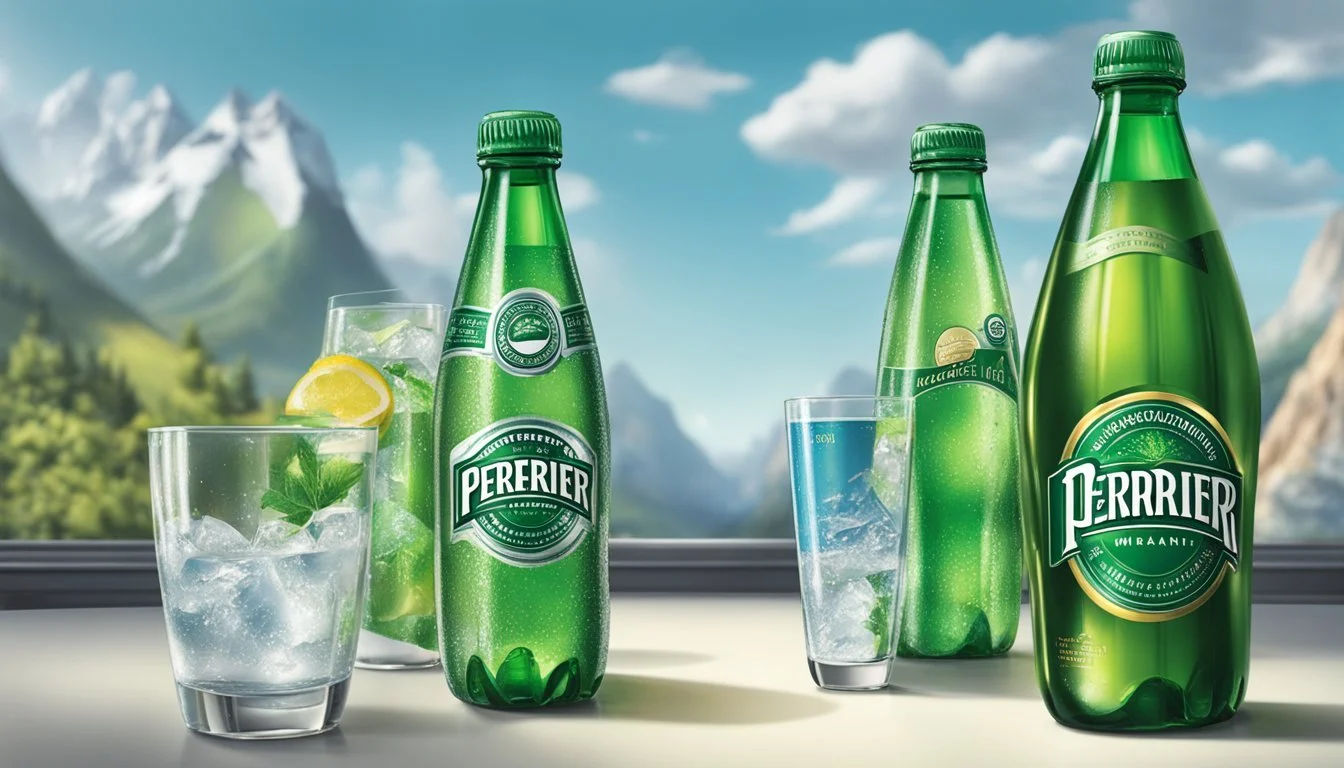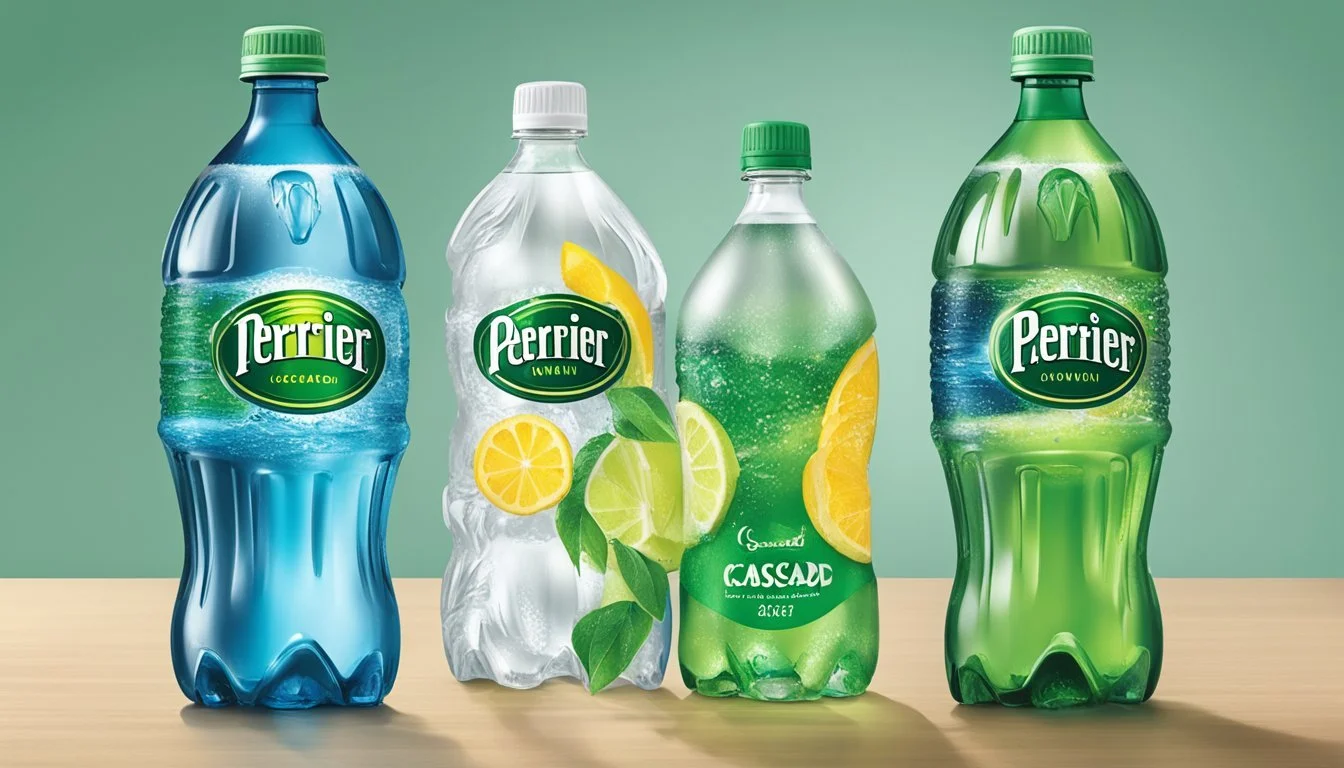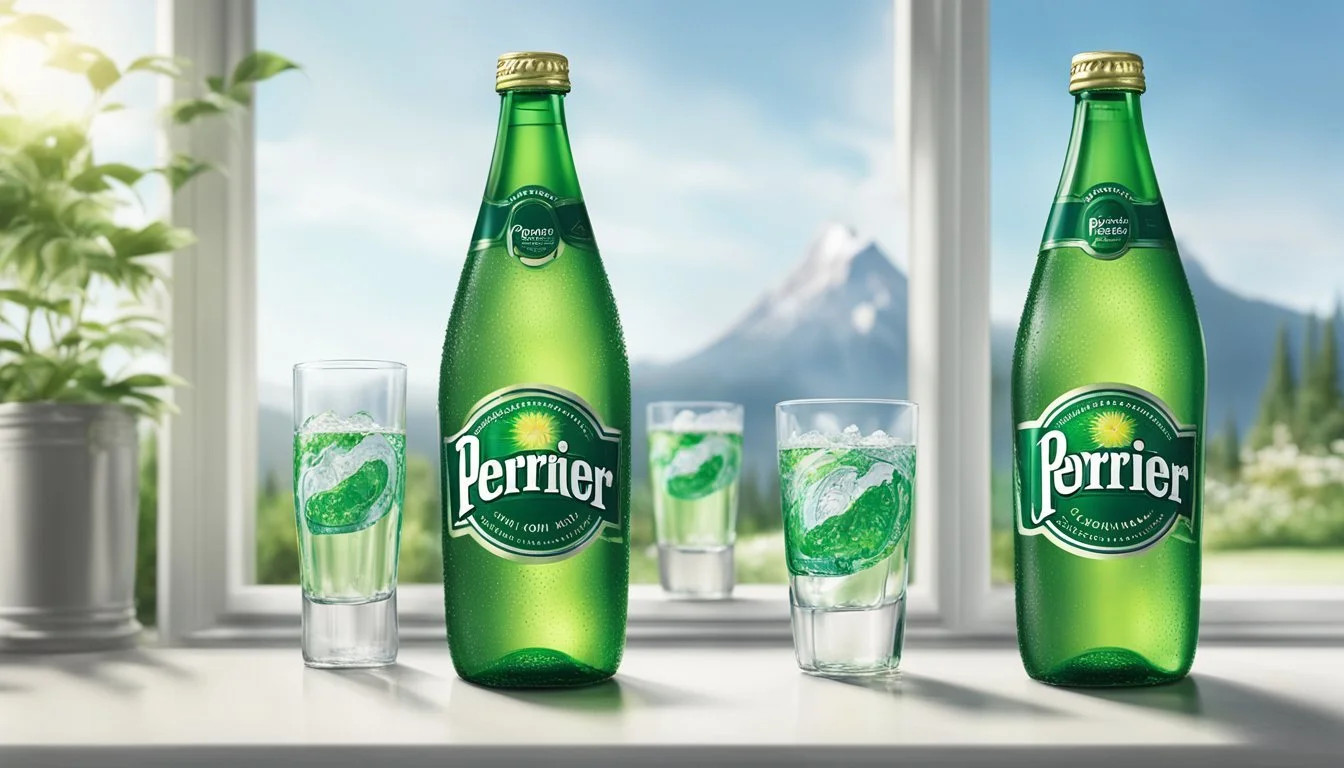Perrier vs. Cascade Mountain
Analyzing Premium Bottled Water Options
When it comes to choosing a premium bottled water, the decision often boils down to personal preference and brand reputation. Perrier, with its renowned sparkling profile, has been a staple in the bottled water industry for decades. Originating from France, it is celebrated for its effervescent bubbles and crisp, clean taste, making it a favorite among sparkling water enthusiasts.
On the other hand, Cascade Mountain aims to offer a pure, refreshing experience drawn from the pristine waters of the Cascade Range. Known for its clean, mineral-rich profile, Cascade Mountain provides a different kind of hydration compared to the bubbly Perrier.
If you prefer a smooth, pure taste with a reputation for quality, Cascade Mountain might be your go-to choice. For those leaning towards a sparkling water experience, Perrier stands out as a classic, refreshing option. This comparison will help you decide which brand aligns with your taste and lifestyle. Stay hydrated!
History and Origin of Perrier and Cascade Mountain
Perrier is an iconic French brand with a rich history dating back to 1863. Originating from a spring near Les Bouillens in the south of France, Perrier was closely associated with the spa culture of the time. The brand was named after Dr. Perrier, the medical director of the spring, who played a crucial role in perfecting the bottling process.
The spring itself is known for its naturally carbonated water, a key attribute that has made Perrier a household name in premium bottled water.
Cascade Mountain, on the other hand, is sourced from natural springs in the Cascade Range of the Pacific Northwest. This region is renowned for its pristine environment and high-quality natural spring water.
Cascade Mountain prides itself on providing pure, unadulterated water, capturing the essence of the Cascade Range's natural beauty.
Both brands emphasize the purity and natural origins of their water. Perrier's historical association with French spa culture contrasts with Cascade Mountain's focus on the untouched wilderness of the Cascade Range.
These differing origins reflect the unique qualities each brand brings to the bottled water market. Perrier's sparkling, naturally carbonated water offers a distinct experience, while Cascade Mountain provides the freshness associated with mountain springs.
In summary, Perrier and Cascade Mountain embody different yet equally prestigious traditions of bottled water. Perrier's long history and its association with French heritage contrast with Cascade Mountain's commitment to purity and the natural spring water of the Cascade Range. Both brands continue to offer consumers a taste of their unique origins, each in its own distinctive way.
Source and Purification Processes
Perrier and Cascade Mountain represent two distinct approaches to sourcing and purifying water. While Perrier is known for its naturally carbonated spring water from France, Cascade Mountain emphasizes sustainability and purity from Oregon.
Water Sources of Perrier and Cascade Mountain
Perrier sources its water from a spring in Vergèze, France. This spring water is naturally carbonated, meaning the carbonation occurs naturally underground. The water rises from deep beneath the earth, collecting minerals as it passes through various geological layers.
Cascade Mountain, on the other hand, gets its water from Butte Falls, Oregon. This source is known for its pristine environment, ensuring that the water remains pure and untouched. The focus is on sustaining the natural quality of the water, which is often sourced from mountain springs and underground aquifers.
Purification and Bottling Methodologies
Perrier employs minimal treatment to preserve its natural carbonation. The primary processes include filtration to remove any particulates and other impurities. After filtering, the water retains its natural mineral content and carbonation. Ultraviolet light is used to ensure microbiological safety without affecting the water's natural properties.
Cascade Mountain follows a rigorous purification process aimed at maintaining purity. The water is filtered to remove contaminants, and both ozone treatment and Ultraviolet light are used to ensure the water is free from harmful microorganisms. These methods enable Cascade Mountain to deliver pure, refreshing spring water that meets high safety standards without adding any artificial ingredients.
Health and Hydration Benefits
Perrier and Cascade Mountain offer distinct health benefits primarily due to their unique mineral contents. Understanding the specific minerals and electrolytes in these bottled waters reveals how they support hydration and overall health.
Minerals and Electrolytes in Bottled Water
Perrier is known for its natural carbonation and its substantial mineral content, including calcium, magnesium, and potassium. These minerals are necessary for various bodily functions. Calcium aids in bone health and muscle function. Magnesium is crucial for energy production and nerve function, while potassium regulates fluid balance and muscle contractions.
Cascade Mountain water, sourced from Arkansas springs, is praised for its purity and clean taste. It contains sodium, magnesium, and trace calcium. While low in sodium, it offers enough to help maintain fluid balance without overwhelming those on low-sodium diets.
Comparative Analysis of Health Benefits
Perrier's mineral-rich profile supports robust health benefits, particularly for those needing electrolytes like magnesium and potassium. These minerals play a role in maintaining cardiovascular health, muscle function, and preventing cramps.
Cascade Mountain water emphasizes hydration with its low sodium content and minerals that promote a natural, refreshing taste. It is suitable for people prioritizing lower sodium intake while still wanting the hydration benefits of mineral water.
Both waters hydrate effectively, but their distinct mineral compositions offer tailored benefits. Choosing between them may depend on individual dietary needs or health goals, such as higher potassium and calcium intake from Perrier or a lower-sodium option like Cascade Mountain.
Environmental Impact and Sustainability
The environmental impact and sustainability of bottled water brands like Perrier and Cascade Mountain are of increasing concern. This section evaluates their eco-friendly practices in production, as well as the materials used in their bottles and packaging.
Eco-Friendly Practices in Production
Perrier has made strides in improving its environmental footprint. They have invested in renewable energy sources for their bottling plants and are making efforts to reduce water waste.
Cascade Mountain prides itself on sustainable sourcing. Their water is sourced from alpine springs, with minimal impact on the surrounding ecosystem. They adopt similar renewable energy practices to minimize carbon emissions.
Both companies have pledged to reduce their carbon footprints significantly by adopting greener technologies and processes.
Bottles and Packaging Materials
Perrier mainly uses glass bottles, which are highly recyclable and reduce plastic waste. However, they also offer plastic options, which contribute to environmental concerns.
Cascade Mountain primarily uses plastic bottles, specifically PET plastics, which are easier to recycle than other plastics. They are making efforts to increase the percentage of recycled materials in their packaging.
While glass bottles from Perrier are more eco-friendly, Cascade Mountain's initiatives to recycle and reduce plastic usage aim to mitigate environmental harm.
Flavor Profiles and Consumer Preferences
Perrier and Cascade Mountain offer distinct taste experiences that appeal to different taste buds. Evaluations reveal contrasts in flavor and consumer reactions to both products.
Taste Test Outcomes
In blind taste tests, Perrier's sparkling water is often noted for its bold effervescence and subtle mineral bite. The carbonation provides a refreshing sensation, making it a preferred choice for those who enjoy a fizzy drink.
On the other hand, Cascade Mountain's natural spring water, typically still, is praised for its clean, crisp taste. It has a balanced mineral content that many find refreshing without the distraction of bubbles. This positions it well for consumers who prefer still water over sparkling options.
Consumer Opinions and Reviews
Consumers have varying opinions based on their preferences. Perrier's flavored sparkling waters, such as lemon and lime, receive positive feedback for their light, refreshing taste. Some find the natural flavors of Perrier to enhance the drinking experience without being overpowering.
Cascade Mountain's still water garners appreciation for its purity and smoothness. Many consumers prefer it for daily hydration needs. Reviews often highlight its lack of aftertaste and natural, unadulterated flavor, making it a favorite amongst those who favor simple, still water.
Both brands cater to different market segments, demonstrating that the best choice largely depends on whether one prefers sparkling or still water.
Product Range and Offerings
Perrier and Cascade Mountain offer a variety of bottled water products designed to cater to different preferences, including sparkling, still, and flavored options. Both brands aim to provide high-quality hydration solutions but differ in their unique selections.
Variants of Perrier
Perrier is known for its robust range of sparkling waters. The brand offers classic sparkling water in various bottle sizes, such as 330 ml, 500 ml, and 750 ml.
Another significant part of Perrier's product range includes its flavored sparkling waters. Popular flavors comprising lemon, lime, and grapefruit provide a refreshing twist to the standard sparkling water experience. Different bottle sizes and can formats are available, catering to both convenience and preference.
The brand also emphasizes the natural origin of its water, sourced from a spring in Vergèze, France, which contributes to its distinctive mineral profile.
Cascade Mountain Selections
Cascade Mountain provides a diverse range of still and sparkling waters sourced from the pristine springs of the Cascade Mountains.
The brand's still water options are available in multiple sizes, focusing on delivering pure, unadulterated hydration.
Cascade Mountain also excels in its sparkling water offerings, which are available in both plain and flavored varieties. Flavors including blackberry, cucumber, and peach are designed to appeal to different palates.
Their commitment to sustainability is evident in eco-friendly packaging options, offering consumers a more environmentally conscious choice without compromising on quality.
Branding and Market Positioning
Perrier and Cascade Mountain adopt different branding and market positioning strategies to appeal to their target consumers. Perrier leverages its global presence and premium positioning, while Cascade Mountain focuses on regional reach and local branding.
Perrier's Global Brand Strategy
Perrier is a recognized name in the bottled water industry, primarily due to its rich history and consistent global marketing. Originating from France, Perrier positions itself as a luxurious and premium sparkling water option. The brand emphasizes its natural carbonation and unique mineral composition, which is sourced from the Vergèze spring.
Perrier uses distinctive green bottles and elegant packaging that reinforces its high-end image. They run international advertising campaigns and partner with upscale restaurants and events. This association boosts the perception of Perrier as a status symbol aimed at discerning consumers who prioritize quality and elegance in their choices.
Cascade Mountain's Regional Approach
Cascade Mountain, on the other hand, focuses more on regional branding. Based out of the Pacific Northwest, it markets itself as a natural spring water option, highlighting its pure and refreshing qualities. This strategy appeals to consumers who prefer locally sourced and environmentally friendly products.
The brand often emphasizes its regional heritage, using imagery of pristine mountain landscapes on its packaging. Cascade Mountain also engages in community events and partnerships that resonate with the local audience, enhancing its reputation as a community-focused brand. This strategy helps Cascade Mountain build a loyal customer base within its region without competing directly on a global scale.
Price Comparison and Value for Money
Perrier and Cascade Mountain bottled waters offer different pricing structures and value propositions.
Perrier pricing:
24 x 16.9 oz Bottles for $13.48.
18 x 11.15 oz Flavored Cans for $24.99.
24 x 16.9 oz Flavored Bottles for $25.33.
Cascade Mountain pricing:
12 x 16.9 oz Bottles for $7.99.
24 x 16.9 oz Bottles for $14.99.
6 x 1-liter Bottles for $8.49.
When comparing value for money, Perrier's higher price per ounce is evident. Consumers are paying for the brand's premium positioning and distinctive carbonated experience.
In contrast, Cascade Mountain is more economical, especially in larger quantities. This makes Cascade Mountain a budget-friendly option for everyday consumption.
Price per Ounce Calculation:
Perrier (24 x 16.9 oz): ~$0.033/oz
Cascade Mountain (24 x 16.9 oz): ~$0.037/oz
Despite Perrier being slightly more affordable per ounce in bulk options, Cascade Mountain's larger bottles cater to those needing higher volumes at a lower upfront cost.
Both brands serve different market segments. Perrier, with its distinct flavor and carbonation, appeals more to those willing to pay extra for uniqueness. Cascade Mountain’s pricing is ideal for families or individuals focused on affordability.
Ultimately, the choice hinges on personal preferences and budget considerations.
Certifications and Industry Awards
When comparing Perrier and Cascade Mountain bottled waters, certifications and industry awards play a crucial role in assessing their quality.
Both brands adhere to stringent quality standards. Perrier holds certifications from the International Bottled Water Association (IBWA), which ensures compliance with rigorous safety and quality protocols.
Cascade Mountain also prides itself on meeting high standards with certification from the NSF International. This assures consumers of its commitment to product safety and quality.
Industry Awards
Perrier boasts several awards for its unique carbonation and taste. It has been recognized at various levels for maintaining its signature fizzy texture and refreshing flavor.
Cascade Mountain has earned accolades for its crisp and pure profile. It has received notable awards at the Berkeley Springs International Water Tasting, one of the most prestigious water tasting events globally.
Awards and Recognitions:
Perrier:
Recognized for taste and carbonation
Multiple industry awards
Cascade Mountain:
Acclaimed for purity and flavor
Awards from Berkeley Springs International Water Tasting
Such recognitions highlight each brand's dedication to quality and consumer satisfaction. This information provides insight into the trust and credibility each brand holds in the bottled water industry.
Safety Standards and Regulations Compliance
Both Perrier and Cascade Mountain adhere to strict safety standards and regulations to ensure their bottled water is healthy and safe for consumption. These regulations are primarily governed by the Food and Drug Administration (FDA) and the Environmental Protection Agency (EPA).
Perrier follows stringent procedures to comply with the FDA’s "standard of identity" and "standard of quality" regulations. These rules define the different types of bottled water and set maximum levels for contaminants, including chemical and physical substances.
Cascade Mountain also adheres to significant safety protocols to meet regulatory requirements. The EPA enforces guidelines regarding the presence of harmful chemicals such as lead in drinking water. Compliance with these standards is mandatory to ensure the water is safe for consumption.
Both brands publish reports that detail their adherence to safety and quality regulations. Consumers are encouraged to review these reports, which are often found on the company's website or included on the bottled water labels.
Key Regulatory Bodies:
FDA: Oversees bottled water safety standards, including identity and quality regulations.
EPA: Sets guidelines for contaminant levels, including chemicals like lead.
By following these strict regulations, Perrier and Cascade Mountain ensure that their water is free from harmful contaminants and safe for everyday use.
Consumer Advocacy and Transparency
Consumer advocacy organizations play a crucial role in monitoring the bottled water industry. They often test water samples to ensure safety and quality. For example, Consumer Reports recently found toxic PFAS chemicals in several popular bottled water brands. These findings highlight the importance of transparency in the industry.
Transparency involves providing consumers with clear information about their water's source and quality. Perrier and Cascade Mountain both emphasize their water's purity and source. Perrier, sourced from France, is known for its mineral-rich composition. Cascade Mountain, bottled in Oregon, focuses on sustainability and purity.
Some brands, unfortunately, face issues related to corporate malfeasance. These can include misleading marketing and a lack of transparency regarding water sources. Consumers are urged to check labels and seek third-party reports to verify the claims made by these companies.
To foster transparency, some brands provide detailed water quality reports on their websites. These reports often include test results for contaminants, pH levels, and mineral content. Consumers can use this information to make more informed choices about their bottled water.
Transparency is not just about data but also about ethical practices. Brands that actively disclose information about their sourcing, treatment processes, and environmental impact often gain consumer trust. Both Perrier and Cascade Mountain have made efforts in this direction, but scrutiny from consumer advocacy groups ensures ongoing accountability.
Effective consumer advocacy and transparency lead to better industry standards and safer products. As consumers become more educated, the demand for honest, clear information continues to grow, pushing the industry towards more responsible practices.
Final Comparison and Recommendations
Drinking Experience
Cascade Mountain offers a crisp, clean taste, making it a favorite among consumers who prefer a pure water experience. Perrier, known for its sparkling bubbles, provides a refreshing alternative for those seeking a fizzy drink. Both brands excel in their own niches, catering to different preferences.
Consumer Choice
When it comes to choices, Perrier is often selected for its sparkling variety, which can be used as a mixer in beverages or enjoyed on its own. Cascade Mountain, offering still water, appeals to those looking for natural, unaltered spring water. Both brands have strong followings, emphasizing different aspects of a pleasant drinking experience.
Health Impact
Perrier contains naturally occurring carbonation and minerals, which some consumers find beneficial. Cascade Mountain prides itself on low mineral content, appealing to those wanting minimal additions. Each brand adheres to strict health and safety standards, ensuring safe consumption.
Bottom Line
For those who enjoy sparkling water, Perrier stands out with its effervescent quality and light mineral taste. Those preferring pure, still water may favor Cascade Mountain for its clean and refreshing nature. Personal preference will play a significant role in determining which brand better suits individual needs.
Recommendations
Choose Perrier for a sparkling, refreshing drink with a slightly mineral taste.
Opt for Cascade Mountain if you prefer crisp, clean still water with minimal mineral content.
Both brands offer quality bottled water, catering to varied consumer preferences and health considerations.
More About Perrier
Icelandic Glacial vs Perrier: Which Bottled Water is Better?
Mountain Valley Spring Water vs Perrier: Which Bottled Water is Better?
Perrier vs Kirkland Signature: Which Bottled Water is Better?
Perrier vs Richard's Rainwater: Which Bottled Water is Better?
Perrier vs Whole Foods Italian Still Mineral water: Which Bottled Water is Better?
More About Cascade Mountain
Acqua Pana vs Cascade Mountain: Which Bottled Water is Better?
Antipodes vs Cascade Mountain: Which Bottled Water is Better?
Aqua Carpatica vs Cascade Mountain: Which Bottled Water is Better?
Aquafina vs Cascade Mountain: Which Bottled Water is Better?
Arrowhead vs Cascade Mountain: Which Bottled Water is Better?
Boxed Water vs Cascade Mountain: Which Bottled Water is Better?
Cascade Mountain vs 1907water: Which Bottled Water is Better?
Cascade Mountain vs 7-Select: Which Bottled Water is Better?
Cascade Mountain vs Alkaline88: Which Bottled Water is Better?
Cascade Mountain vs Big Chill: Which Bottled Water is Better?
Cascade Mountain vs BodyArmor: Which Bottled Water is Better?
Cascade Mountain vs CBD Living: Which Bottled Water is Better?
Cascade Mountain vs Crystal Geyser: Which Bottled Water is Better?
Cascade Mountain vs Crystal Lake: Which Bottled Water is Better?
Cascade Mountain vs Essence pH10: Which Bottled Water is Better?
Cascade Mountain vs Kirkland Signature: Which Bottled Water is Better?
Cascade Mountain vs Open Water: Which Bottled Water is Better?
Cascade Mountain vs Proud Source: Which Bottled Water is Better?
Cascade Mountain vs Pure Life: Which Bottled Water is Better?
Cascade Mountain vs Refreshe: Which Bottled Water is Better?
Cascade Mountain vs Richard's Rainwater: Which Bottled Water is Better?
Cascade Mountain vs Simple Truth: Which Bottled Water is Better?
Cascade Mountain vs Talking Rain AQA: Which Bottled Water is Better?
Cascade Mountain vs The Well: Which Bottled Water is Better?
Cascade Mountain vs Weird Water: Which Bottled Water is Better?
Cascade Mountain vs Whole Foods 365: Which Bottled Water is Better?
Castle Rock vs Cascade Mountain: Which Bottled Water is Better?
Core Hydration vs Cascade Mountain: Which Bottled Water is Better?
Deer Park vs Cascade Mountain: Which Bottled Water is Better?
Essentia vs Cascade Mountain: Which Bottled Water is Better?
Hawaii Volcanic vs Cascade Mountain: Which Bottled Water is Better?
Hawaiian Springs vs Cascade Mountain: Which Bottled Water is Better?
Ice Mountain vs Cascade Mountain: Which Bottled Water is Better?
Icelandic Glacial vs Cascade Mountain: Which Bottled Water is Better?
Just Water vs Cascade Mountain: Which Bottled Water is Better?
Liquid Death vs Cascade Mountain: Which Bottled Water is Better?
Mananalu vs Cascade Mountain: Which Bottled Water is Better?
Mountain Valley Spring Water vs Cascade Mountain: Which Bottled Water is Better?
Nestle Pure Life vs Cascade Mountain: Which Bottled Water is Better?
Poland Spring vs Cascade Mountain: Which Bottled Water is Better?
Purely Sedona vs Cascade Mountain: Which Bottled Water is Better?
San Pellegrino vs Cascade Mountain: Which Bottled Water is Better?
Smartwater vs Cascade Mountain: Which Bottled Water is Better?
Solan de Cabras vs Cascade Mountain: Which Bottled Water is Better?
Topo Chico vs Cascade Mountain: Which Bottled Water is Better?
Tru Alka vs Cascade Mountain: Which Bottled Water is Better?
Whole Foods Italian Still Mineral water vs Cascade Mountain: Which Bottled Water is Better?
Zephyrhills vs Cascade Mountain: Which Bottled Water is Better?

